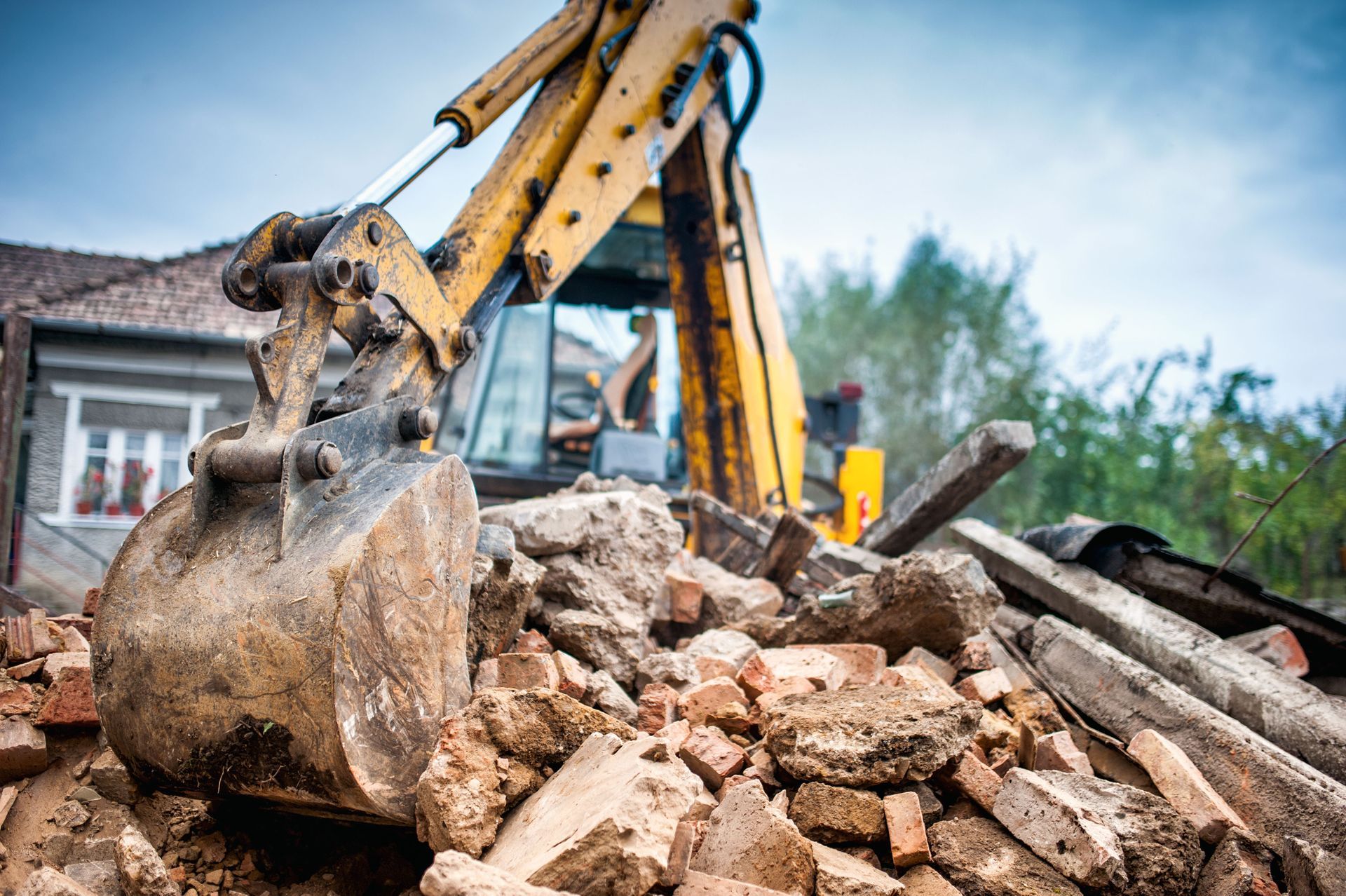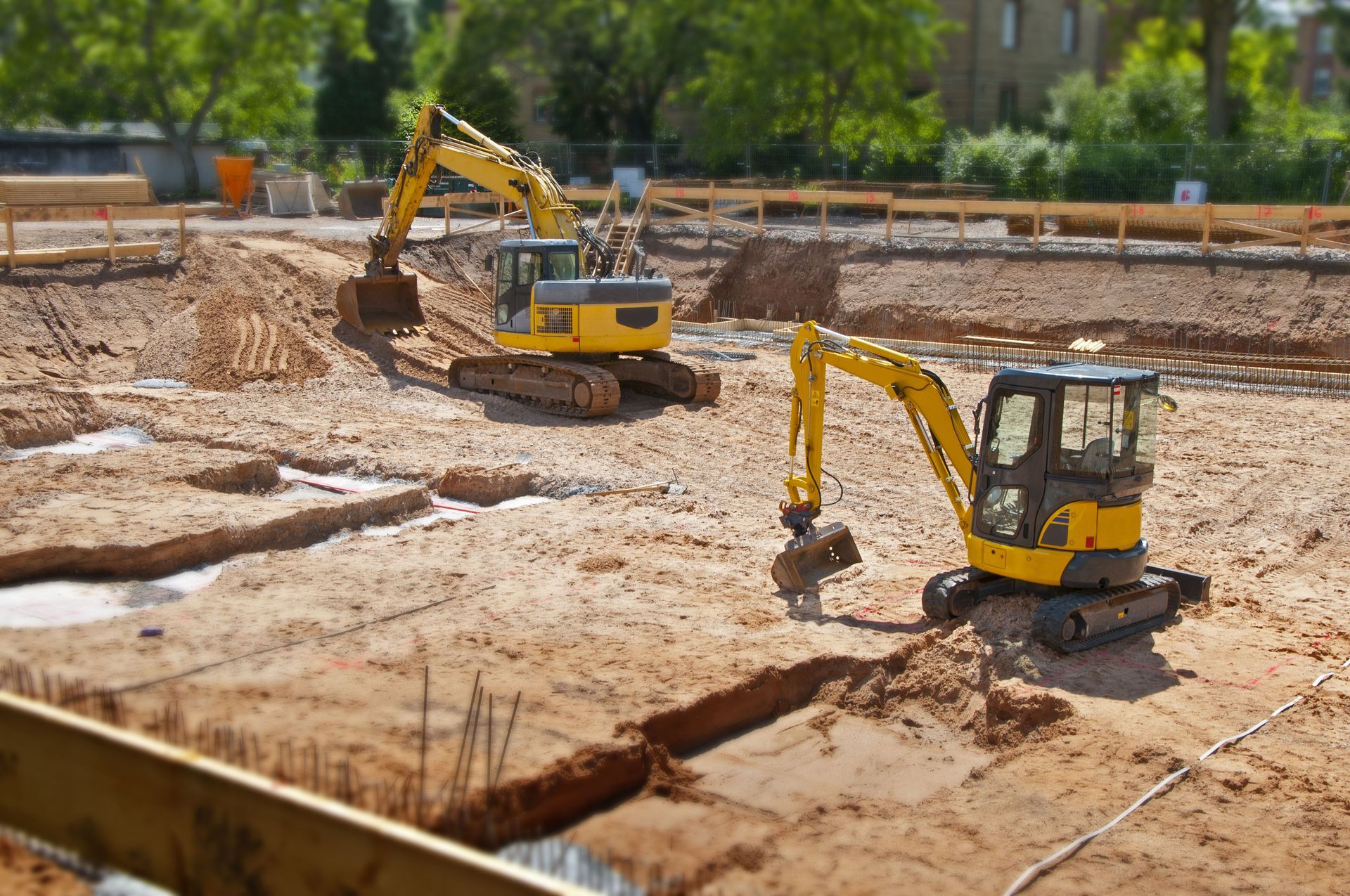Tips for Hiring the Right Excavation Contractor
Excavation is a critical part of construction projects, and hiring the right excavation contractor can influence the project's success. This article outlines key considerations when selecting an excavation contractor to ensure your project is completed efficiently and safely. With myriad options available, identifying the most suitable contractor may seem daunting, but a structured approach can streamline the process. This detailed guide will navigate you through understanding project needs, researching contractors, evaluating credentials, and finalizing a contract. By prioritizing these elements, you can mitigate risks and enhance the project's likelihood of success. Choosing wisely not only protects your budget but also ensures that timelines are met, safety standards are upheld, and the overall quality of the project remains uncompromised. Ultimately, the right excavation contractor becomes a trusted partner in turning your construction plans into reality.
Define Your Project Requirements Clearly
Defining the scope of work is the first pivotal step in hiring an excavation contractor. Knowing exactly what tasks need to be accomplished will tailor your search to contractors with the specific skills required. The scope includes excavation depths, volume, and any additional services such as site grading. Understanding this will help you communicate clearer expectations and will enable more accurate bidding and proposals from potential contractors. Therefore, thorough documentation and a preliminary plan should be developed.
Next, identify the type of excavation required for your construction endeavor. Whether the project involves trenching for utilities or large-scale site preparation, different specialists are equipped to handle various challenges. Knowing the exact excavation type helps in shortlisting contractors with relevant experience and equipment. Moreover, it sets a baseline for consistently comparing all prospective contractors. Research and consultation with construction managers can provide additional insights into specific excavation requirements.
Besides scope and type, determining the project timeline is imperative. Excavation phases must align with the broader project schedule to prevent costly delays. Delays not only inflate costs but may also lead to friction between the various stakeholders involved. Thus, it’s crucial that the contractor can adhere to stipulated timelines or propose reasonable schedules. Open communication about any challenges in meeting deadlines should be a key consideration when finalizing agreements. Factoring in site conditions such as soil type, drainage, and accessibility can further refine your project requirements and prevent unexpected complications. The more detailed your planning stage, the smoother the excavation contractor selection and execution process will be.
Assess Contractor Experience and Specialized Skills
When assessing a contractor's experience, consider the number of years they have been in business. A long track record generally indicates stability and reliability within the industry. Such longevity suggests the excavation contractor has managed to navigate varying economic climates and technological shifts. However, this should be weighed alongside evidence of recent activity within the specific construction market you're targeting. Newer companies with innovative approaches shouldn’t be disregarded if they demonstrate up-to-date expertise and technology leadership.
Examining completed projects similar to yours provides context for decision-making. Contractors should confidently share case studies or portfolios illustrating their capabilities and outcomes from similar projects. This substantiates their ability to meet your specific project requirements and attests to their adaptability in handling potential challenges. These examples also help gauge creativity and problem-solving skills, important attributes that could lead to enhanced project solutions. While reviewing portfolios, it’s useful to learn about any challenges faced and how they were managed.
Specialization in specific excavation types adds another layer of competence. Whether you require precision excavation around utilities or landscape modification, contractors with targeted expertise ensure skills and equipment match the job's demands. Safety practices shouldn't be overlooked either, as they indicate contractor priority on worker and site safety, critical for compliance with industry regulations. According to the U.S. Bureau of Labor Statistics, nearly 663,500 openings are estimated each year for construction and extraction occupations—underscoring how vital it is to choose contractors with proven expertise in a highly competitive and rapidly evolving field.
Request Detailed Estimates and Compare Thoroughly
Requesting detailed written estimates from potential contractors is a crucial step in the selection process. A comprehensive quote includes breakdowns of labor, materials, equipment, and other relevant costs. Evaluating these breakdowns reveals insights into the contractor’s understanding of project requirements and their attention to detail. Moreover, specific inclusions and exemptions should be clear to prevent scope creep and ensure each party’s awareness of responsibilities. Written estimates also become a reference point for subsequent cost control.
Comparing pricing structures helps in analyzing offers beyond face value. While one quote might appear cheaper initially, closer scrutiny might show omitted essential services, leading to eventual cost inflation. In-depth assessment involves checking if estimates cover all project stages or if certain elements rely on future contingent approvals, impacting time and budget. These variances highlight why basing decisions solely on upfront cost might inadvertently incur additional long-term expenses. Transparency from contractors in pricing discussions builds trust and confidence.
Analyze equipment and material cost considerations spelled out in the quotes. Equipment issues such as machine availability, condition, or operator expertise directly affect project timelines and quality. Understanding how these elements are accounted for in quotes helps determine the pragmatism of proposed budgets. Also, clearly discuss payment terms and conditions to avoid any unpleasant surprises. Good contractors are flexible and willing to discuss bespoke arrangements that cater to both parties, reflecting positive signs of responsibility and a partnership approach.
Review and Finalize a Comprehensive Contract
Finalizing the contract involves reviewing all details meticulously. Contracts must encapsulate every agreed term, alongside any verbal commitments made during discussions, to avert disputes. The scope of work should outline project demands, execution standards, and completion deadlines explicitly. Clarity in documentation upholds both contractor and client accountability, ensuring mutual expectations are met. It becomes a form of protection should any disagreements arise during the project's lifespan.
Confirming a clear scope of work and timeline consolidates agreement boundaries. Common areas of oversight often include clearly defined milestones, detailed deliverable descriptions, and step-by-step execution paths. These nuances ensure transparency and provide a basis for enforcing quality and performance standards. Outlining contingency plans deals with unforeseen weather, material shortages, or site interruptions, fostering robustness in project continuity. Comprehensive contracts should also address problem resolution paths and monitoring procedures in the agreed formality.
Legal compliance forms a key component in contractual agreements. The contract should reflect compliance with local, state, and national regulations, particularly concerning safety and environmental protocols. Payment schedules must delineate terms like advance deposits, invoicing frequency, and final payment upon project acceptance. All parties' rights and liabilities should be transparently captured in legal jargon approved by qualified counsel. A well-drafted contract not only protects interests but also fosters trust between stakeholders.
Selecting the right excavation contractor is crucial for the success of your project. By thoroughly researching and evaluating contractors, you can ensure a seamless excavation process that aligns with your project goals and timelines. Approaching contractor selection with strategic diligence ultimately safeguards resource investments, ensuring project needs are effectively met. This detailed guide empowers you to make a well-informed, strategic decision that enhances overall project success. Remember, excavation sets the foundation for everything that follows—cutting corners at this stage can lead to costly setbacks later. Partnering with a reliable excavation contractor provides peace of mind, knowing your project is in capable hands from the ground up. Reach out to Dorsey Construction Services LLC to learn more today!






Share On: